Swiss gun fans blast EU-Schengen restrictions
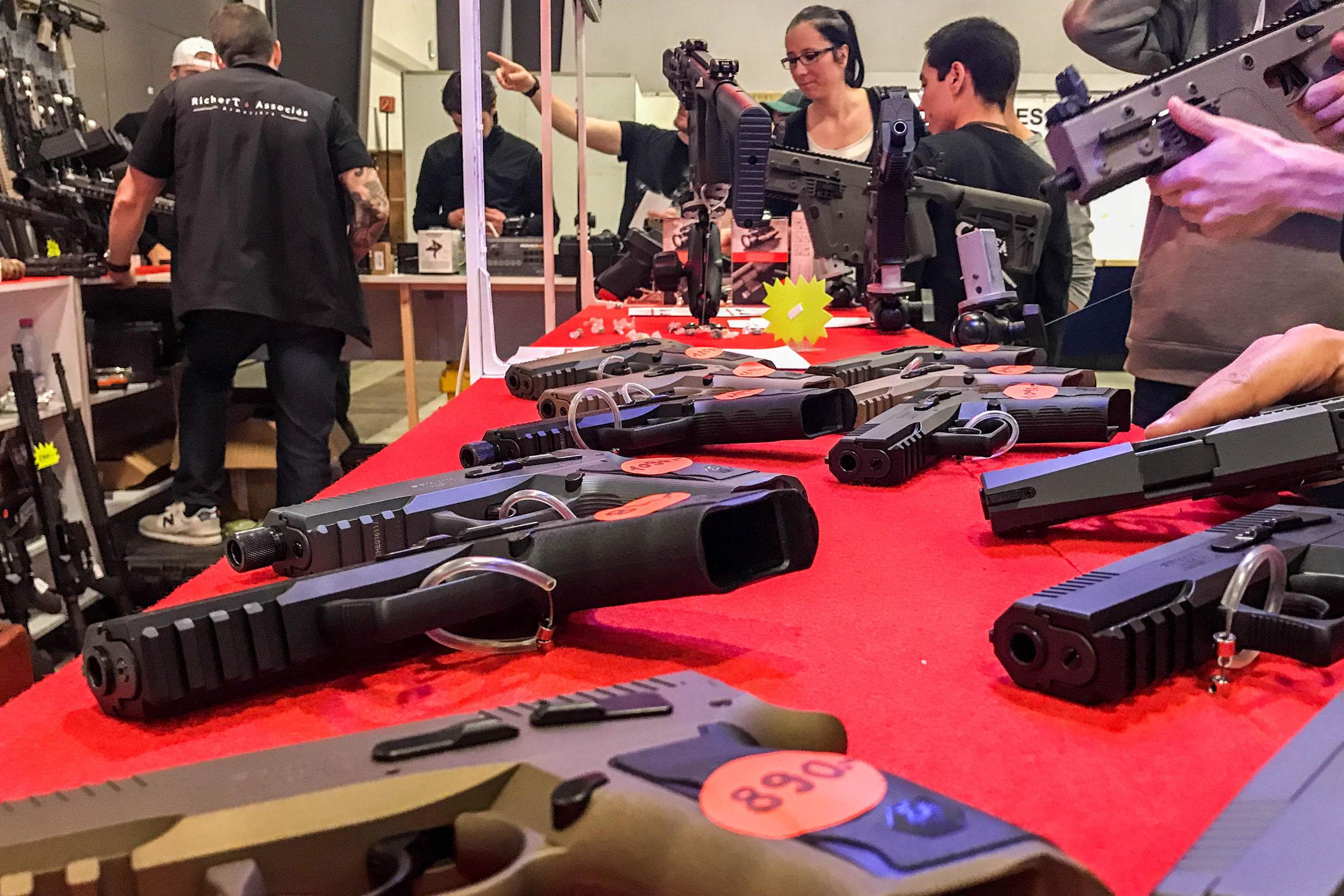
A “light” version of the new European Union gun directive aimed at tightening firearms regulations has got Swiss gun fans hot under the collar. Switzerland, which has deep-rooted gun traditions, is expected to fall in line with the EU restrictions but a referendum could be launched by disgruntled opponents.
Christian Richert leans forward on a red counter bedecked with rows of gleaming hand guns. Behind him semi-automatic and antique rifles hang from the walls of his busy stand at 24th International Gun FairExternal link, recently held at the Beaulieu Conference Centre in Lausanne.
“The Swiss are starting to get fed up with all this,” the Geneva gun dealer tells swissinfo.ch. “In French-speaking Switzerland we are perhaps more fatalistic but I don’t think in German-speaking regions people are ready to have their laws dictated to by Brussels.”
In September, the Swiss cabinet presented for consultation a softer version of a new EU gun directive intended to tighten up firearms regulations across Europe. Although it is not a member of the EU, Switzerland is part of the European Schengen Zone and is subject to its rules.
Drafted after terrorist attacks in Paris in 2015, the EU gun control plansExternal link, due to be completed by 2019, aim to curb online weapons sales and impose tight restrictions on assault weapons. Under pressure from its gun lobby, the Swiss authorities managed to negotiate certain concessions from Brussels.
Under the Swiss government’s proposalExternal link, which is being examined by interested stakeholders, Swiss army-issue weapons would still be allowed to be kept at home after military service, in keeping with tradition. Hunters are also not affected by the plan. But certain semi-automatic weapons – such as those with magazines holding over 20 rounds of ammunition – and some high-capacity shoulder-supported rifles would be banned. No medical or psychological tests for gun owners, nor a central arms register, are part of the plan.
Swiss sport shooters would have to demonstrate proof of membership of a shooting club or other evidence that they regularly use their weapon for sport, and register their weapons with cantonal authorities. Gun collectors will be required to catalogue and report their collections to the authorities.
‘Unrealistic’
CriticsExternal link, however, say the government proposal was decided undemocratically and the clampdown will have no influence on public safety or terrorism in Europe. They are concerned about its impact on their right to bear arms and are particularly unhappy with restrictions on certain categories of semi-automatic weapons and magazines, the possible impact on army-issue guns, and additional bureaucracy.
Exhibitors and visitors to the Lausanne Gun Fair were unanimous in their criticism of the government plan and ever-tighter curbs, saying collectors and amateur shooters would be the most affected.
It’s ‘unrealistic’, declared one visitor: “There have always been guns here and I don’t think Switzerland is prepared to make any more concessions.”
Switzerland’s foremost gun dealer Jean-Robert Consolini, the owner of Lagardere Armoury, said he would fight the proposal.
“These terror attacks were carried out by people using guns from the black market, not from a legal trade via an armoury. So, this directive won’t prevent the traffic of weapons, it’ll just annoy people who like sports shooting and collectors,” he said.
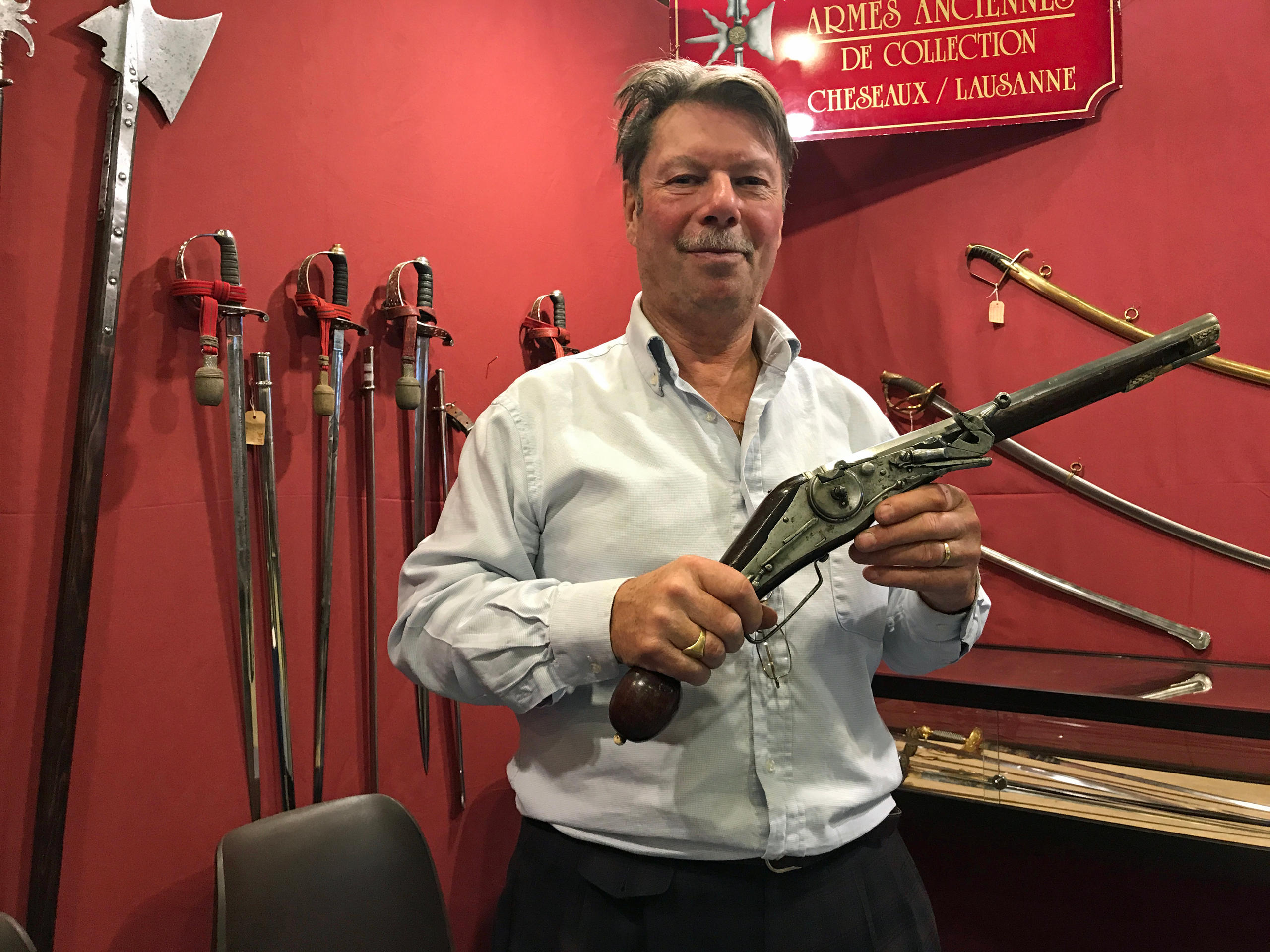
Emile Joyet, president of the Lausanne gun fair and owner of L’Esponton, an antique weapons specialist, concurred.
“This new directive will oppress the collector who correctly declares his guns and carelessly lead to guns automatically entering the so-called ‘grey market’,” he added.
Today, Switzerland has among the highest gun ownership rates per capita among Western countries. It is thought that around two million are in circulation. High rates of ownership and existing gun laws reflect the country’s deep-rooted belief in the right to bear arms and the needs of its militia army.
From brand-new 38mm Smith and Wesson revolvers to dusty Swiss military helmets and equipment, Jean-Paul Schild, the owner of Schild Waffen, was also doing brisk business in Lausanne.
“Most people here are collectors,” he explains. “Some are not even interested in the fact that they are buying a gun but in the gun movement or system. I know some collectors who have 4-5,000 guns.”
The Federal Council (executive body) and the Federal Office of Police (Fedpol) say the Swiss gun control solution is “pragmatic” and won’t affect the role of arms in Swiss culture and traditions. Fedpol Director Nicoletta della Valle says the project should help reduce the number of unused weapons, possibly taking 200,000 out of circulation.
Tough take-home conditions
A report by Swiss public television, SRFExternal link, in October found that the percentage of soldiers who took their weapons home after completing their military service had fallen from 43% in 2004 to 11% last year. The main reason for the marked decline is likely to be various tighter measures in recent years.
Since 2005, soldiers must share the costs if they want to take their weapon home after their service. It costs CHF100 for a FASS90 assault rifle, for example. Since 2010, soldiers must complete an obligatory shooting programme (twice) and 300-metre shooting training (twice) within the three final years of their service, if they want to take their weapon home.
Deep-rooted tradition
But gun fans in Lausanne were unimpressed.
“We won’t reduce anything,” said Joyet. “We will simply be attacking the people who do things correctly and are known to the authorities, but the gangsters and people who intend to use a gun for something serious, like a terror attack, we’ll never do anything about them as they’ll buy on the black market, for example in states in the former Yugoslavia where there are an enormous number of guns.”
Pierre-Alain Dufaux, the owner of Free Sport, P.-A. Dufaux S.A gun shop, acknowledged that many guns were still not registered in Switzerland, despite huge efforts in recent years. The expert marksman argued that it was unfair for Brussels to target Switzerland.
“They want to slow Switzerland but they realise that they really need to clean up what’s going on inside the EU. In Belgium and Ireland there are huge numbers of guns that are not registered. We are small in comparison. Switzerland is a target as we have a liberal policy but we have a good gun law. We are often stricter than EU law. The proof is that apart from two or three incidents nothing happens here,” he noted.
Smaller magazines
Under the Swiss government proposal, army-issue guns may be used for sports shooting – a popular hobby – but there would be strict limitations on the size of certain magazines. Critics say this will be ineffective and simply annoy people.
“You have people who shoot and can change a magazine quickly. That’ll change little in terms of security to have a magazine with 10 bullets. We saw that in the US where they limited magazines to 10 rounds. It changed nothing. People simply took two cartridges. In the US, since then all the laws regarding magazines have changed again. In Europe, we seem to be trying out something that didn’t work in the US ten years ago. It’s ridiculous,” said Schild.
Consolini agreed: “How are they going to apply it, especially as the Swiss army uses magazines that take 24 rounds?”
“Of course, you can always limit a magazine to 10 bullets but what will happen? The person who is really determined to do something bad will simply carry four magazines with them,” he added.
Interested stakeholders have until January 5, 2018 to give their feedback on the Swiss plan. But already opposition is building. The Swiss gun association Pro TellExternal link, which has around 11,000 members, recently debated the question at an extraordinary general meeting in Bern at the end of October.
Members reaffirmed their opposition to the directive and support in principle for launching a referendum against the tightening of Swiss gun laws if parliament approves a government proposal to adopt the European rules.
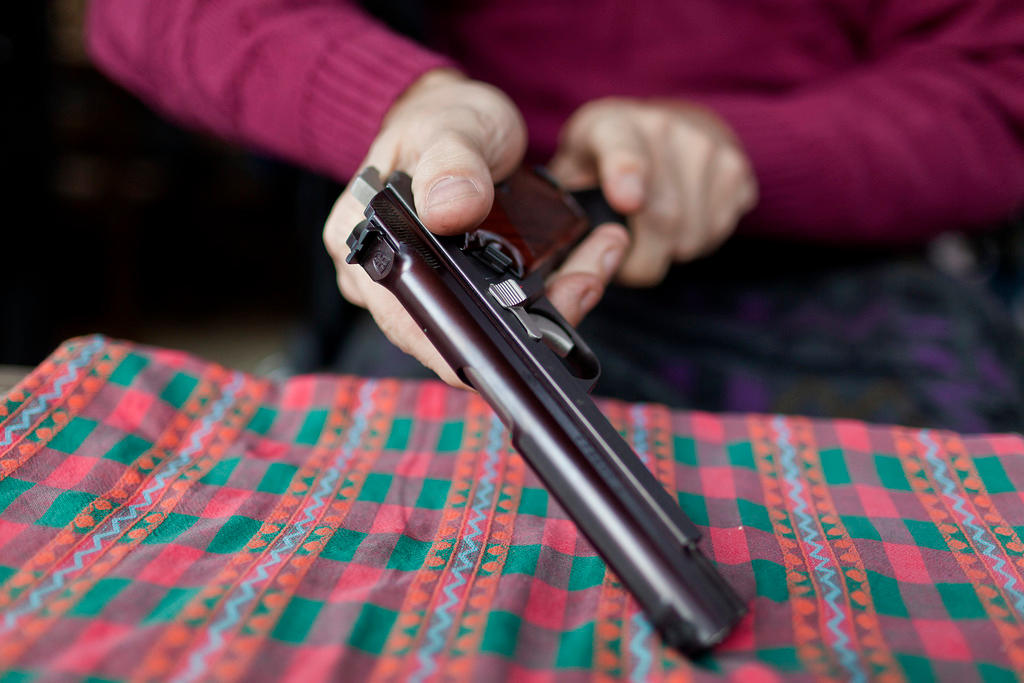
More
Regulating firearms in gun-loving Switzerland

In compliance with the JTI standards
More: SWI swissinfo.ch certified by the Journalism Trust Initiative









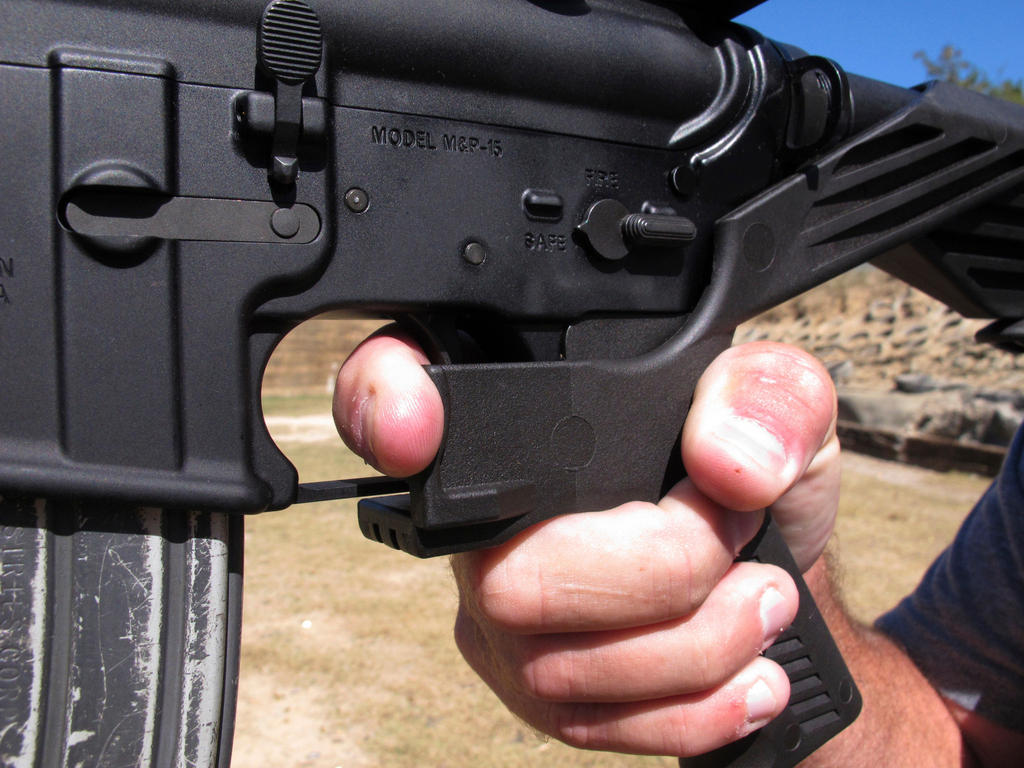

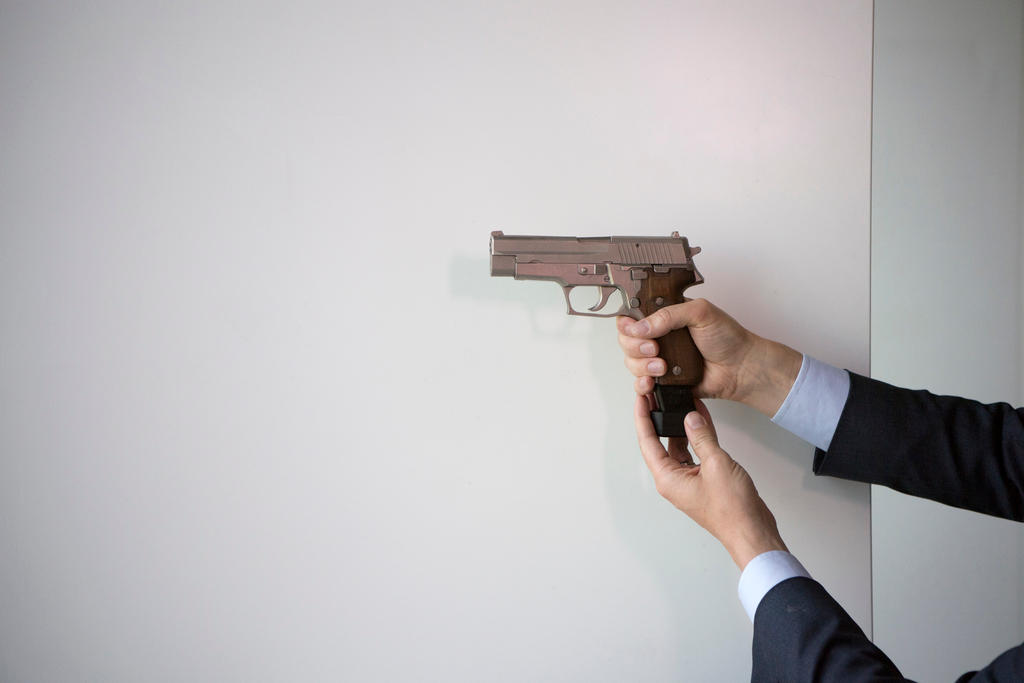
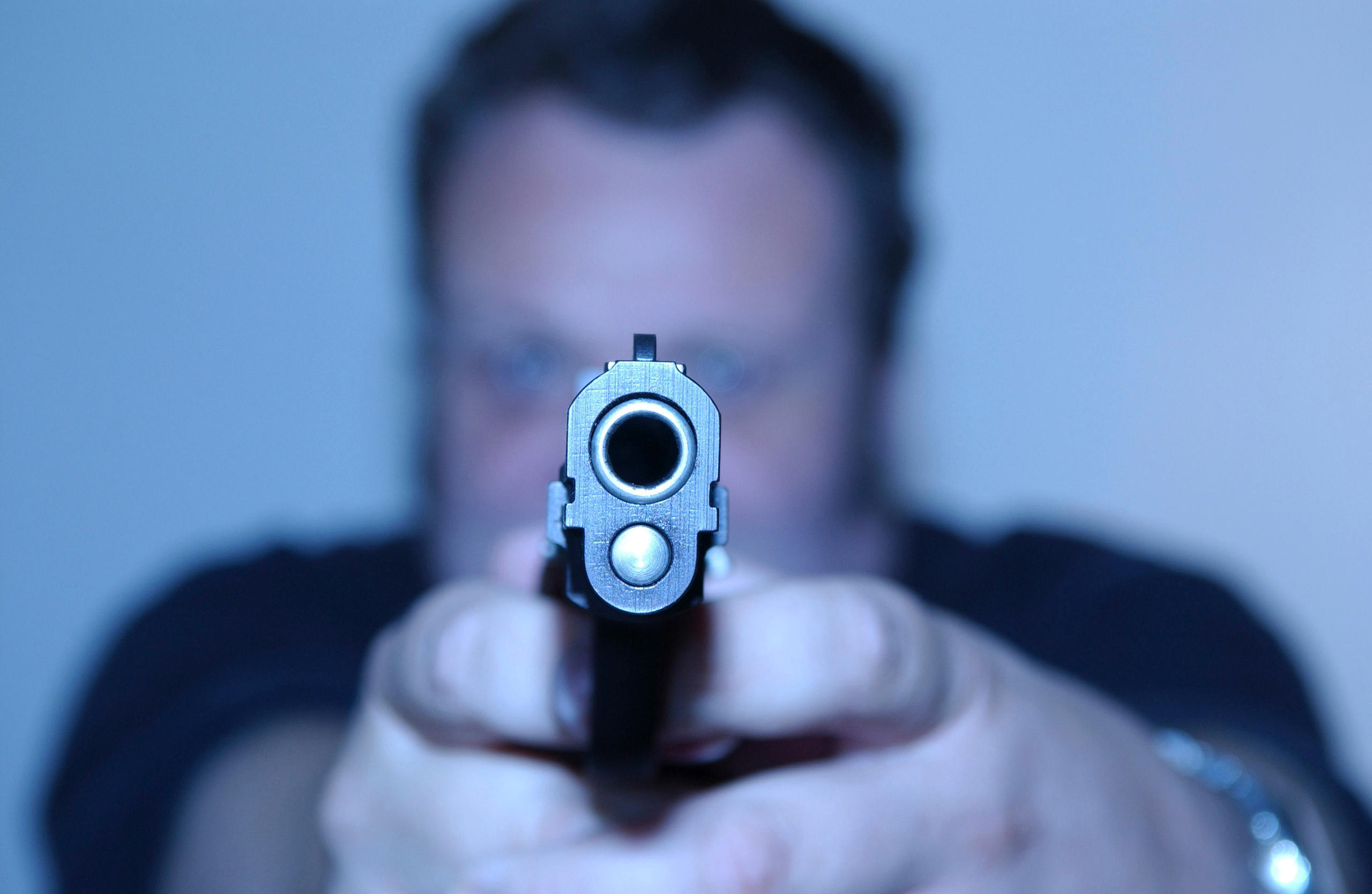
You can find an overview of ongoing debates with our journalists here . Please join us!
If you want to start a conversation about a topic raised in this article or want to report factual errors, email us at english@swissinfo.ch.